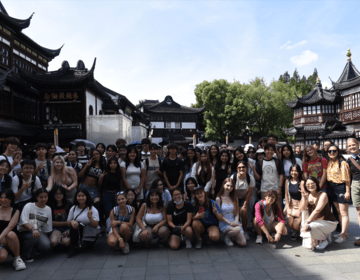Touring Alibaba's Headquarters: China's Top Company through Students' Eyes
This past weekend, we took students on a weekend excursion to Hangzhou. Once we arrived, we took students on a boat cruise around Hangzhou's famous West Lake (西湖). After that, students had free time to walk around a pedestrian street nestled between the mountains. There, they were able to buy souvenirs and enjoy some Hangzhou local specialties for dinner.

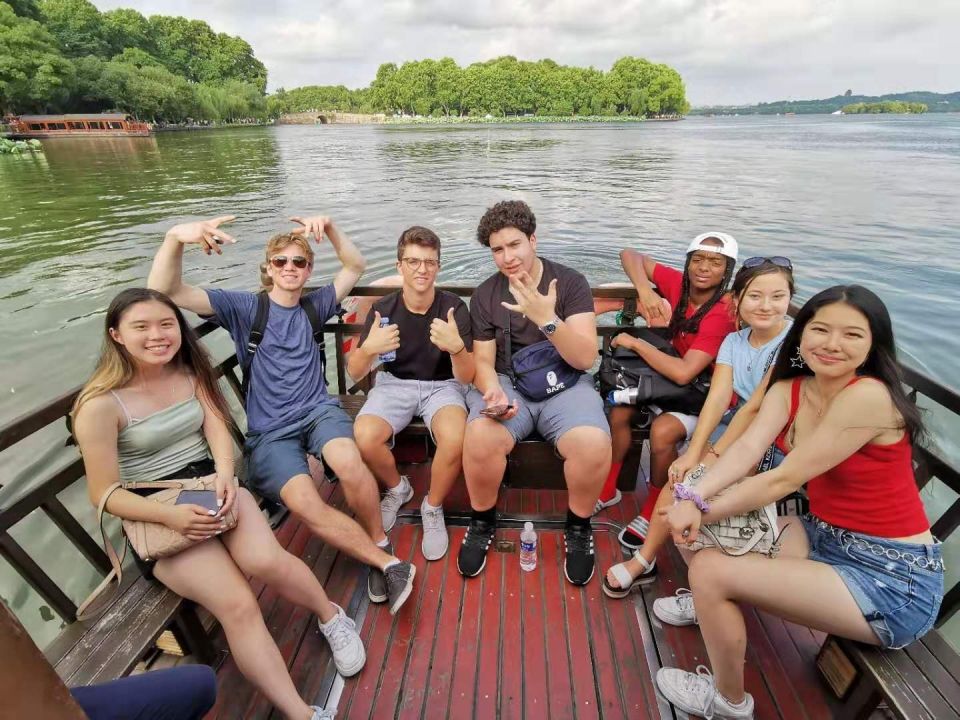
Although our tour of West Lake was gorgeous and relaxing, the activity that stood out most to our students was touring Alibaba Group's main corporate campus in Xixi, Hangzhou. Alibaba Group (阿里巴巴集团) is an incredibly successful, multinational company specializing in e-commerce and technology. Founded in 1999, the company owns and operates an array of businesses around the world in numerous sectors. Today, the conglomerate is one of the world's most lucrative and well-known companies, poised as one of the top 10 largest companies in the world.
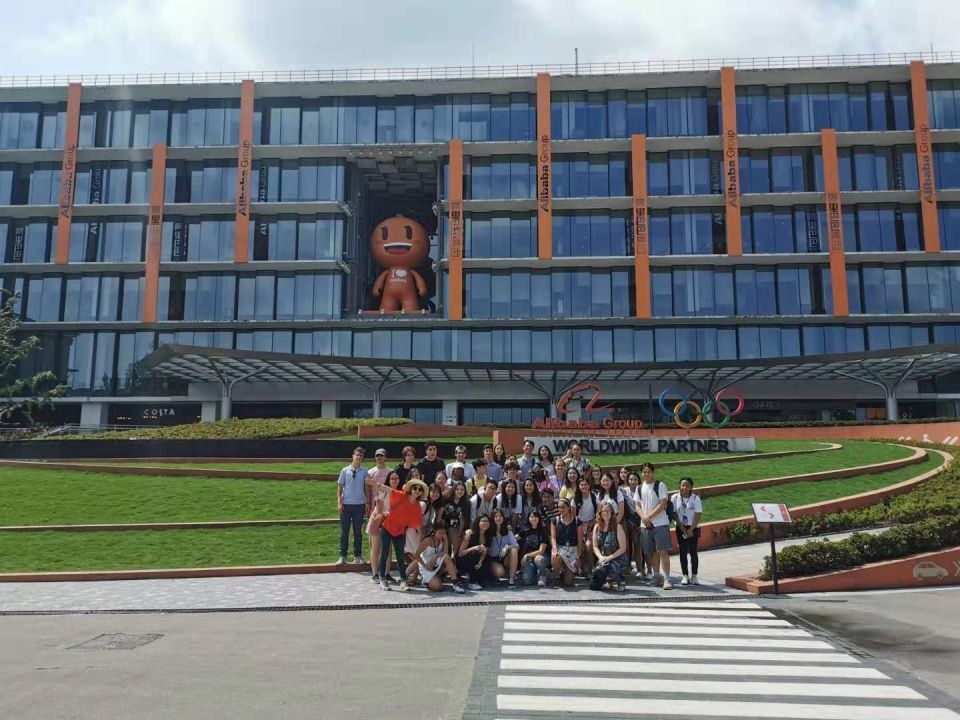
Our tour began inside the visitor's center at the Alibaba corporate headquarters. To start, our tour guides gave us a thorough introduction to the mission of the company. As part of the company's mission to provide innovative measures in corporate culture and management, our tour guides introduced the philanthropic and environmental efforts that Alibaba Group is currently implementing.
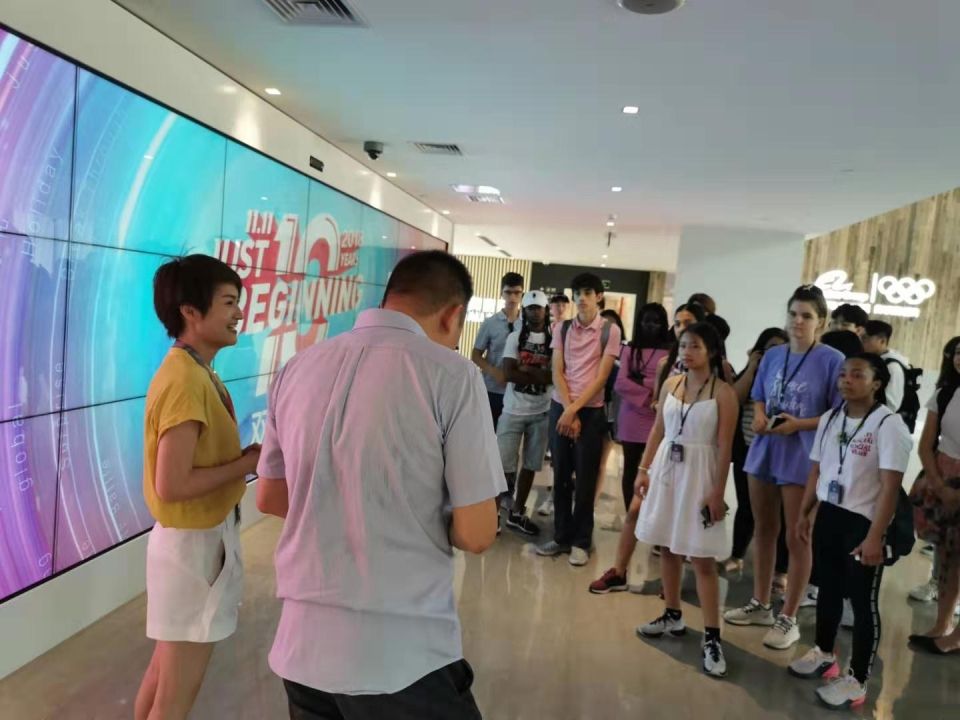
An example of one of their philanthropic initiatives is the creation of an alert system that notifies all Alibaba users within a 3-mile radius when a child goes missing. The success rate of this service has been incredibly high (around 98%), which has inspired other competitors such as Tencent to adopt similar notification systems to help lost children return to their families faster.
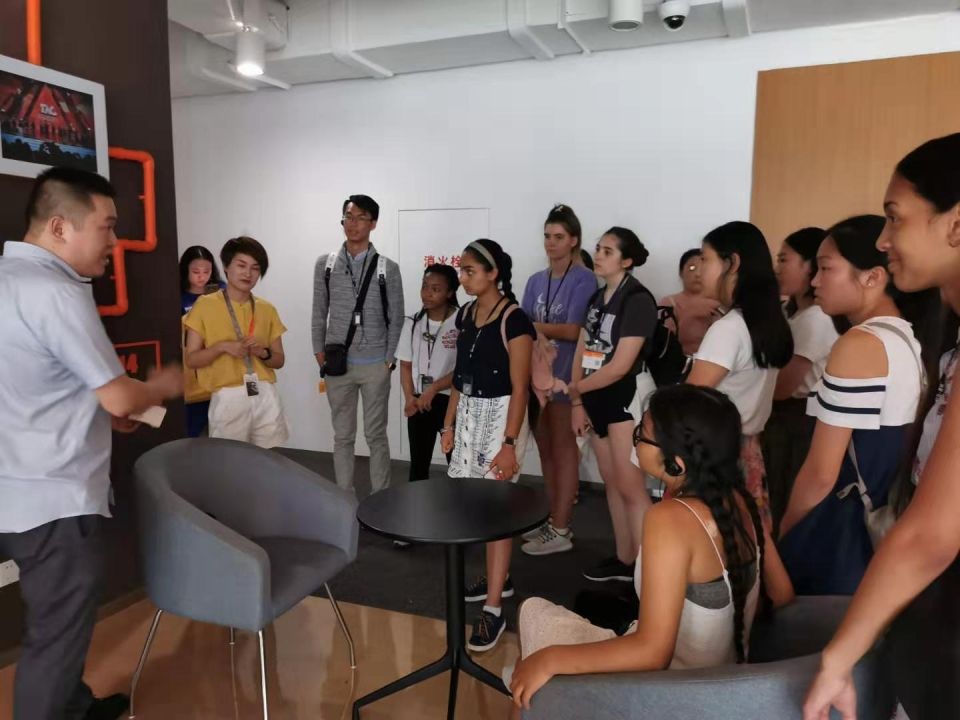
As an environmental initiative, Alibaba users can collect points from transactions that they perform on apps such as Alipay. Once they acquire a certain number of points, they can then plant a tree in virtual space. After the virtual tree has been planted by the user, Alibaba will honor the user's selection and plant a real tree in the same location in the real world. As an active Tai Qi and martial arts practitioner, the company's co-founder and executive chair, Jack Ma, strongly believes in preserving the environment for all to enjoy. For this reason, the company strives to be a leader in the realm of sustainability.
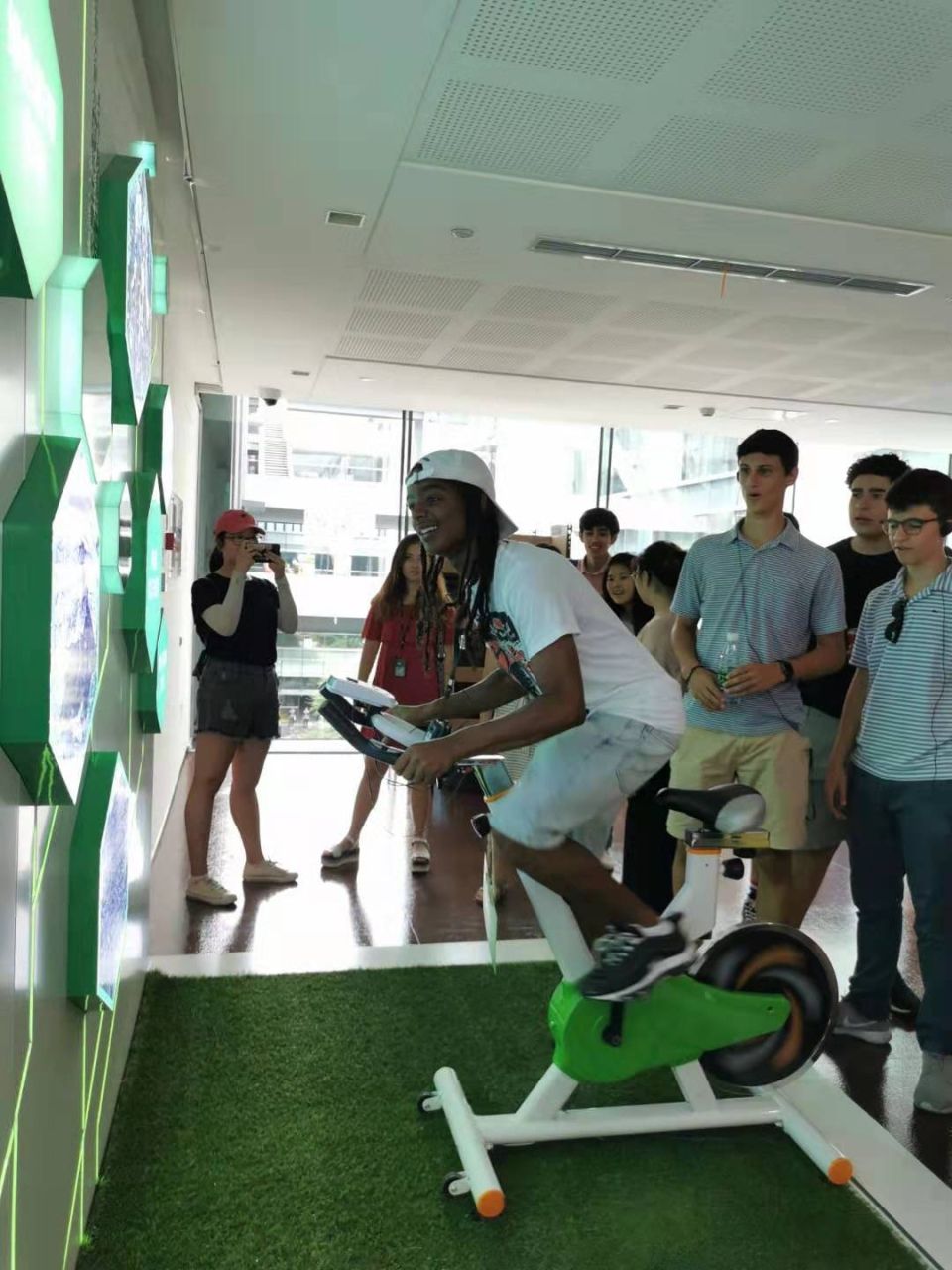
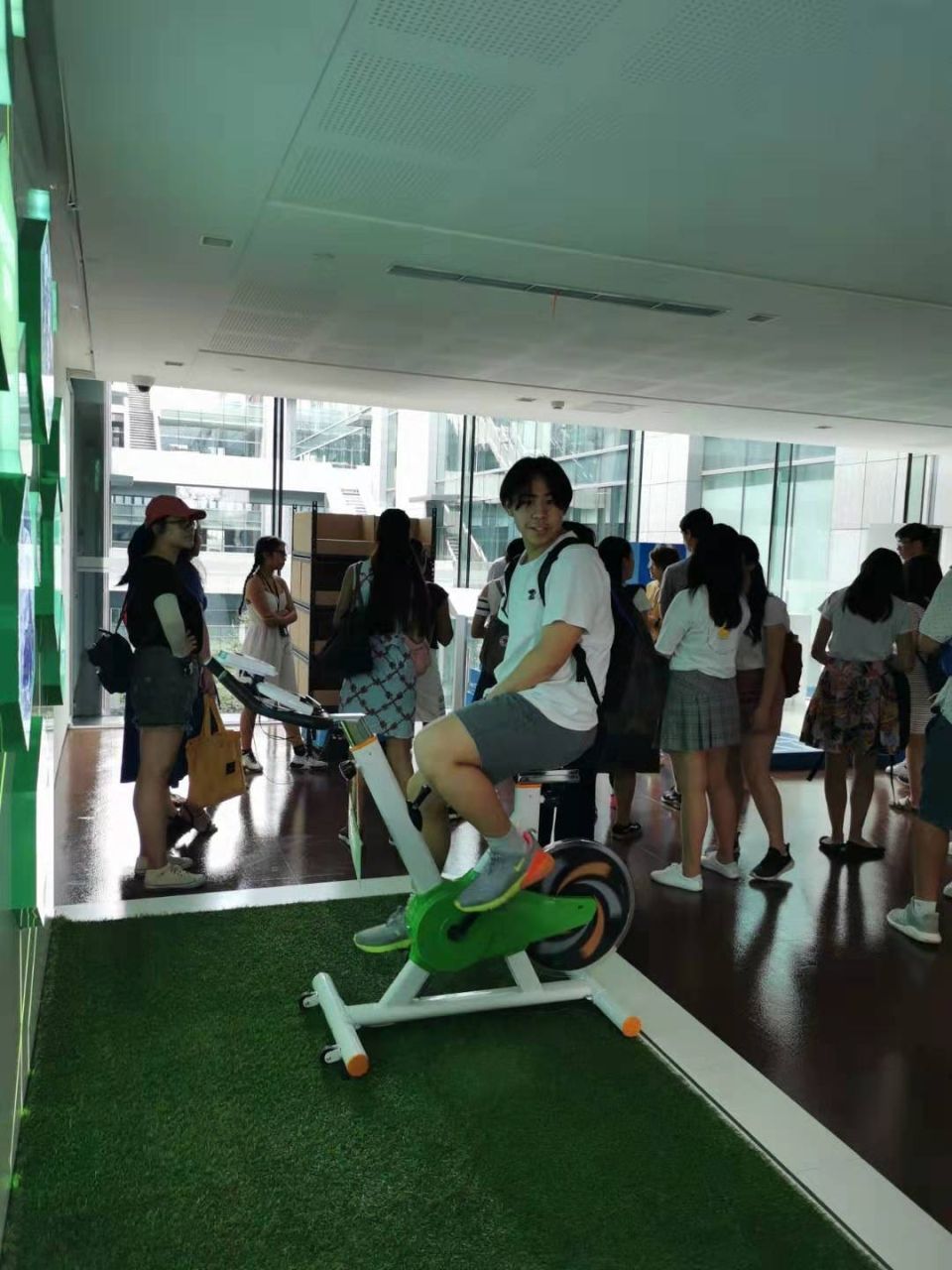
On the second floor, students got to see some of the offices where actual employee interviews and meetings are carried out. They also got to learn more about what it is like being an employee at Alibaba Group. Our guides told us that they really liked working for the company because they are treated well. One day per year, on 5/10 or Ali Day (阿里日), employees can bring their family members (including their pets) to the office for a big celebration. On this day, about 100 couples working for the company can apply to be married, and Jack Ma is the one who oversees these processions.
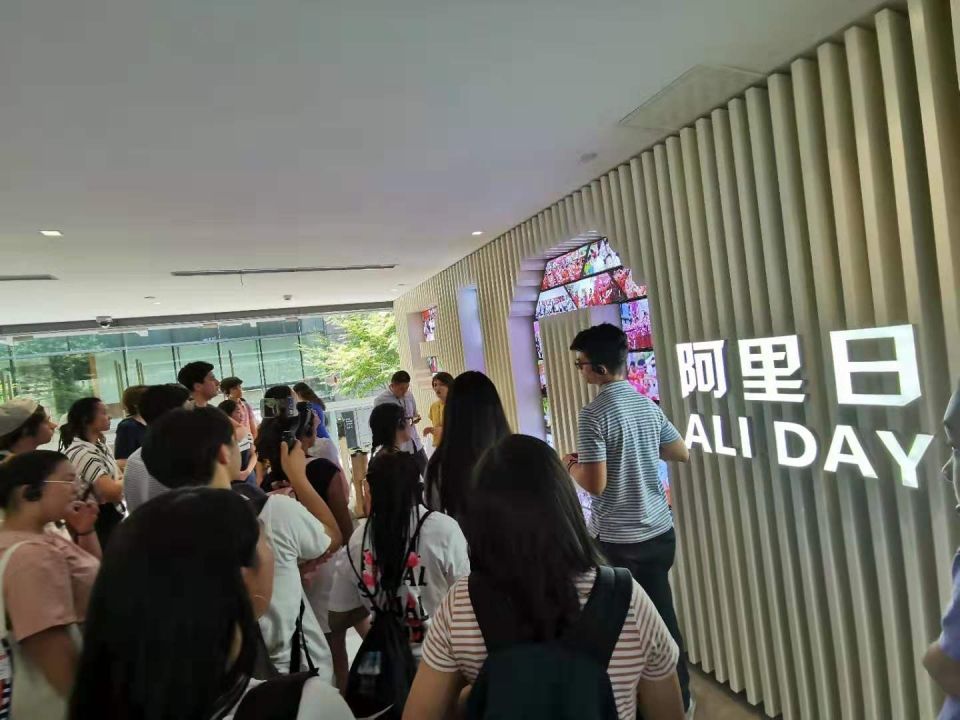
In addition, the company cares deeply about boosting employee morale and satisfaction. To do this, the company provides its employees with exclusive T-shirts so that they can stand united as "an army" all across China.
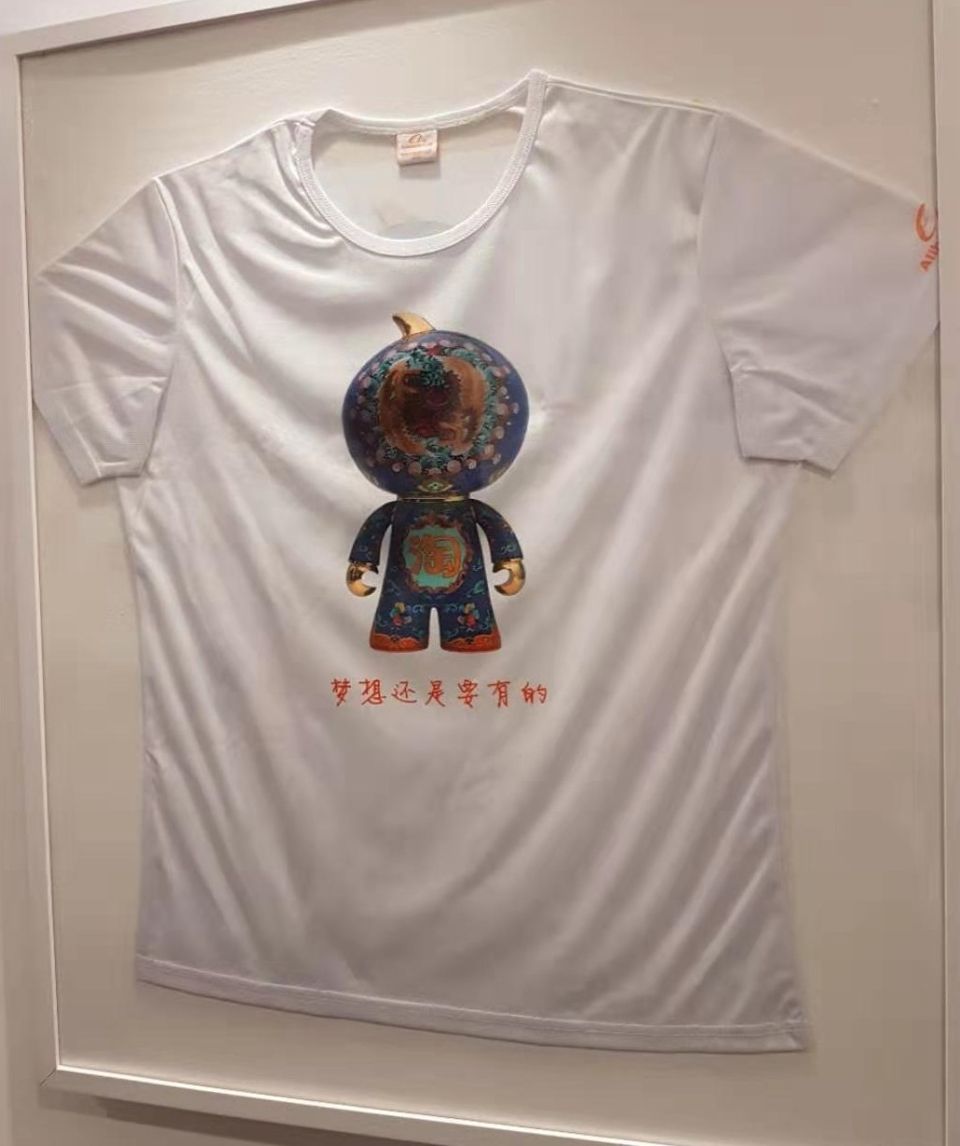
Even better, every week, the company invites a Tai Qi master to come to the office to teach employees Tai Qi. This is because Jack Ma himself practices Tai Qi every day and believes that it is a key to his success because it helps provide him with mental focus, balance, and clarity. The employees really appreciate that the company cares about their mental and physical health as well as their performance at work. This focus on employees' overall health and wellbeing creates an office environment that is free, open, and equal and enhances employees' sense of belonging.
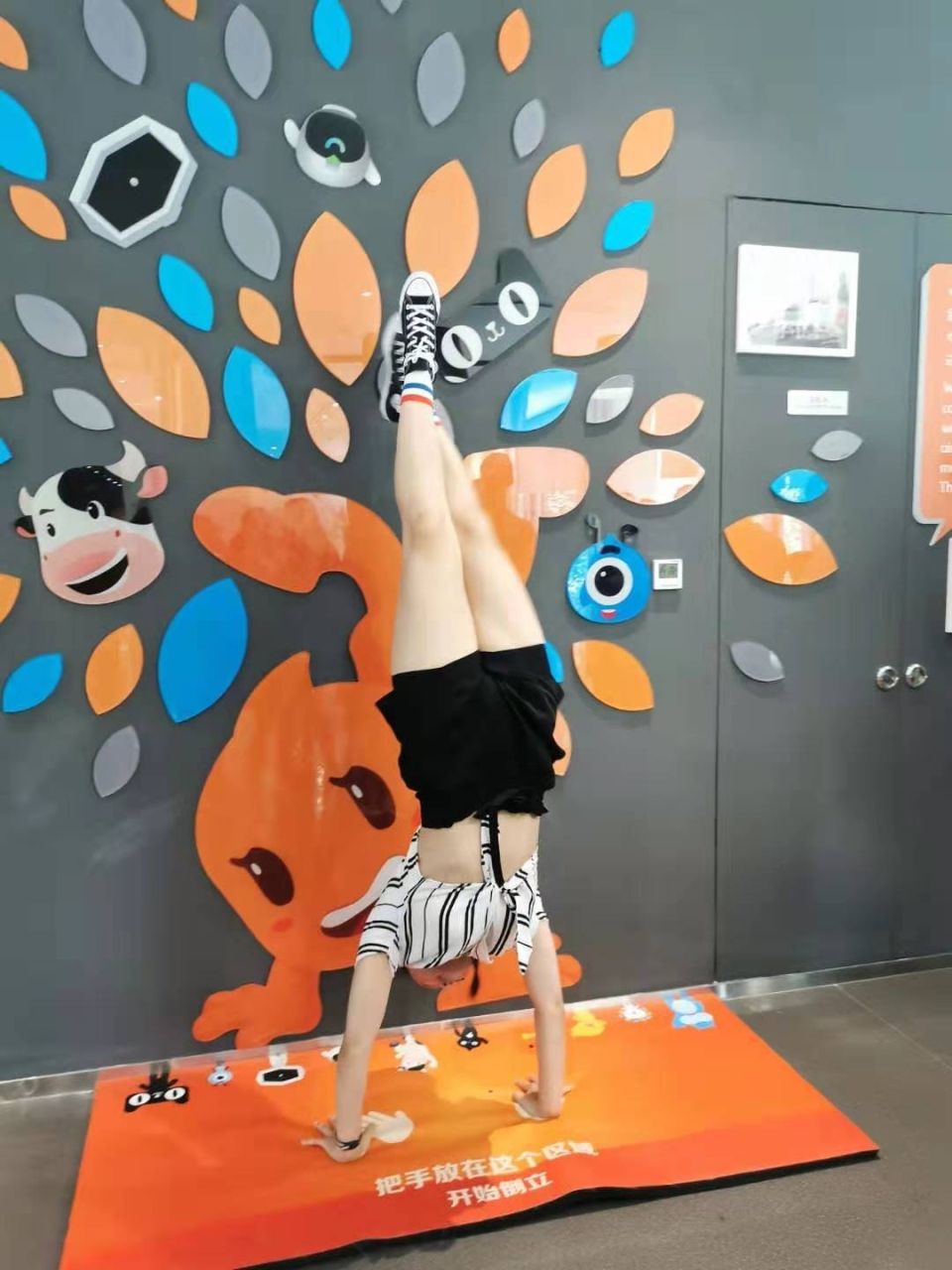
At the end of our tour of the Alibaba visitor center, after a quick stop at the gift shop, we made our way to the next location: Jack Ma's private Tai Qi Zen garden.
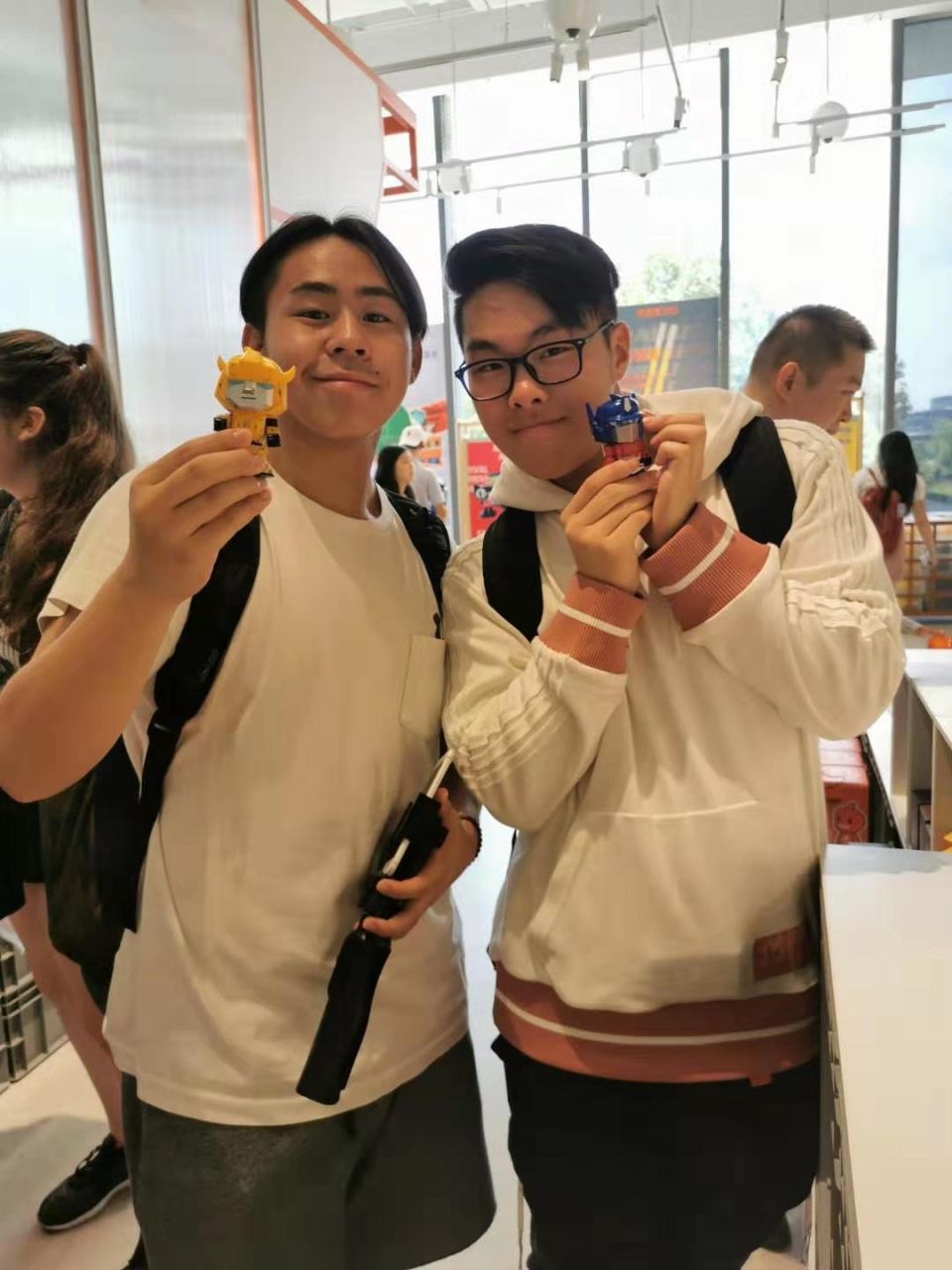
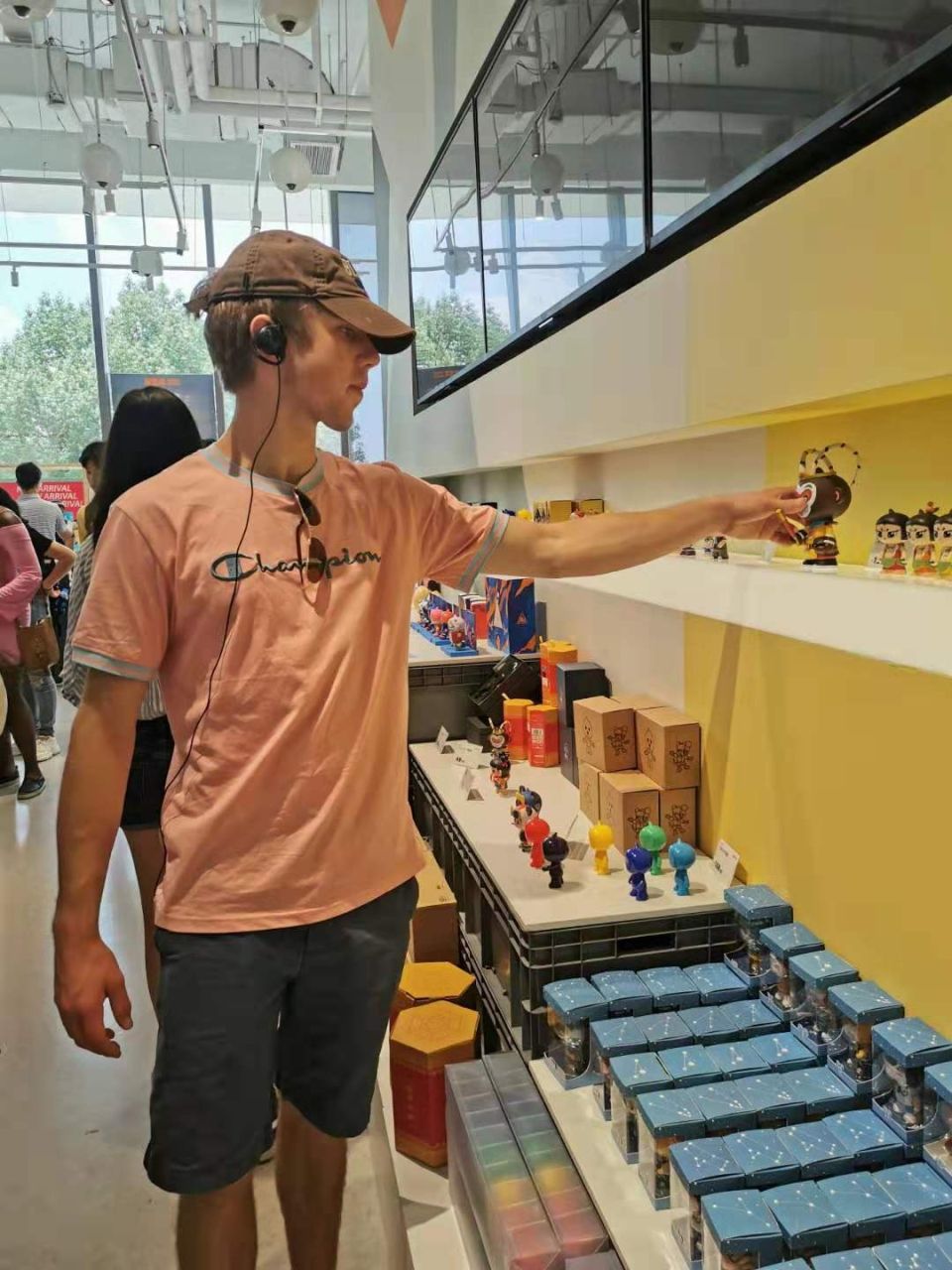
Jack Ma uses this garden to host his important guests, including government officials and important business clients. The grounds were beautiful and were covered by plants, trees, artwork, and decorations that promoted feelings of peace and relaxation. The garden is right next to a lake with a mountain view in the background.

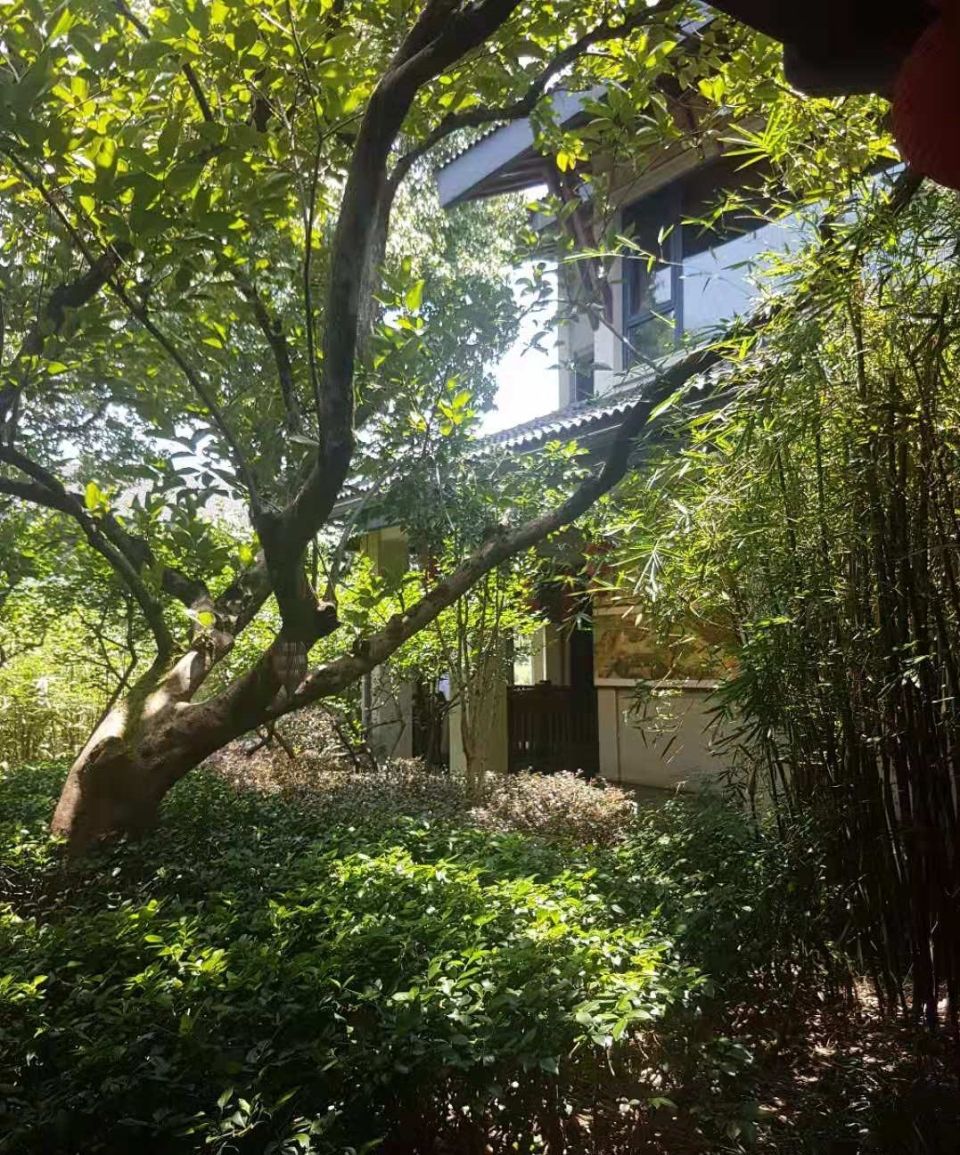
All the buildings in the garden are designed and decorated in a traditional Chinese style, with traditional works of art and calligraphy decorating the inside. Some of the artwork and calligraphy was even done by Jack Ma himself and sold for millions of yuan. A man of many talents, his artwork truly was impressive.

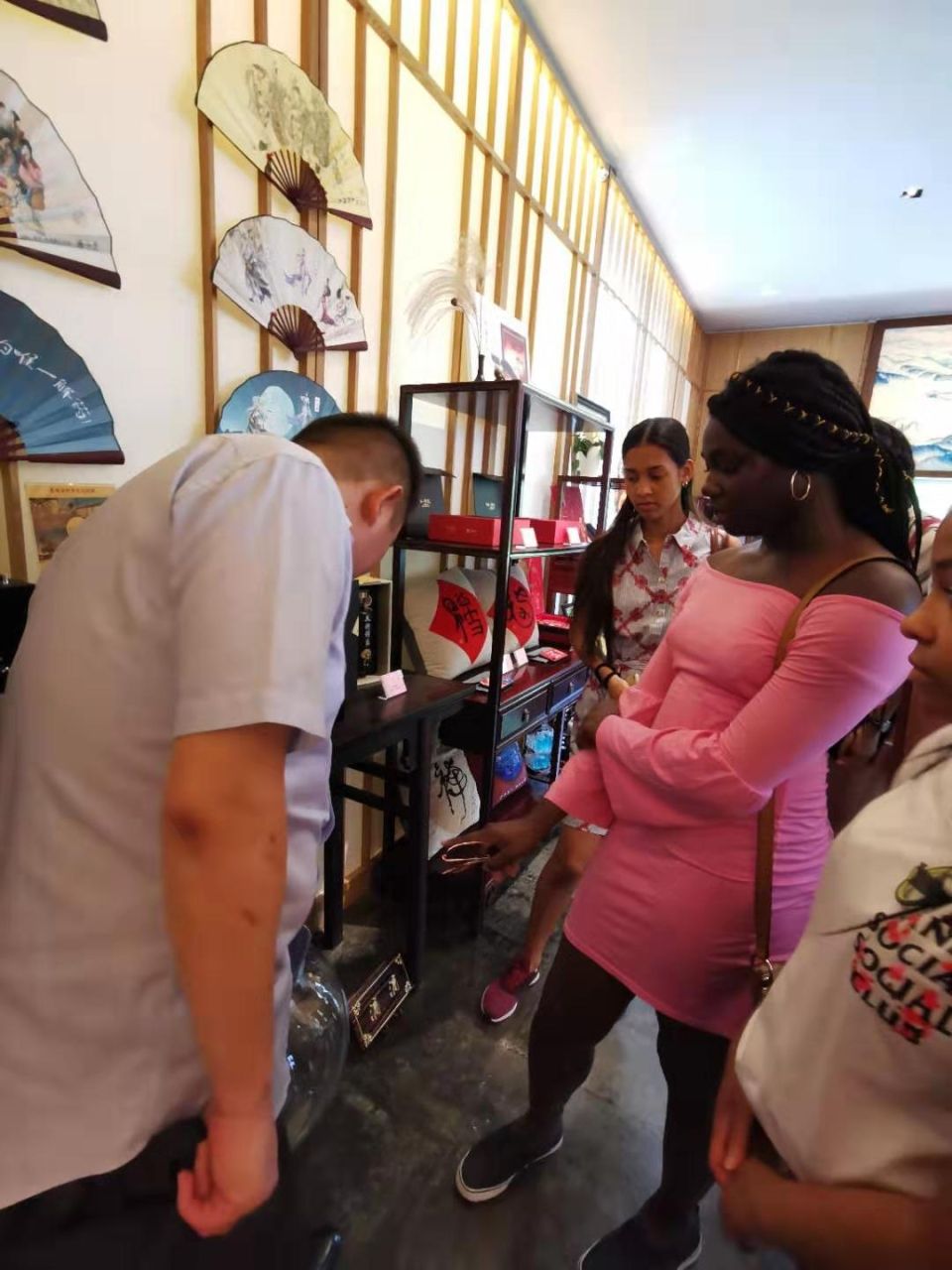
Around the grounds, there were also several fun things for students to see and do. One was a seesaw that posed an important message: "help others, improve yourself" (帮助他人,提高自己). After letting the meaning of this message sink in, students playfully started climbing on the seesaw for some fun and enjoyment.
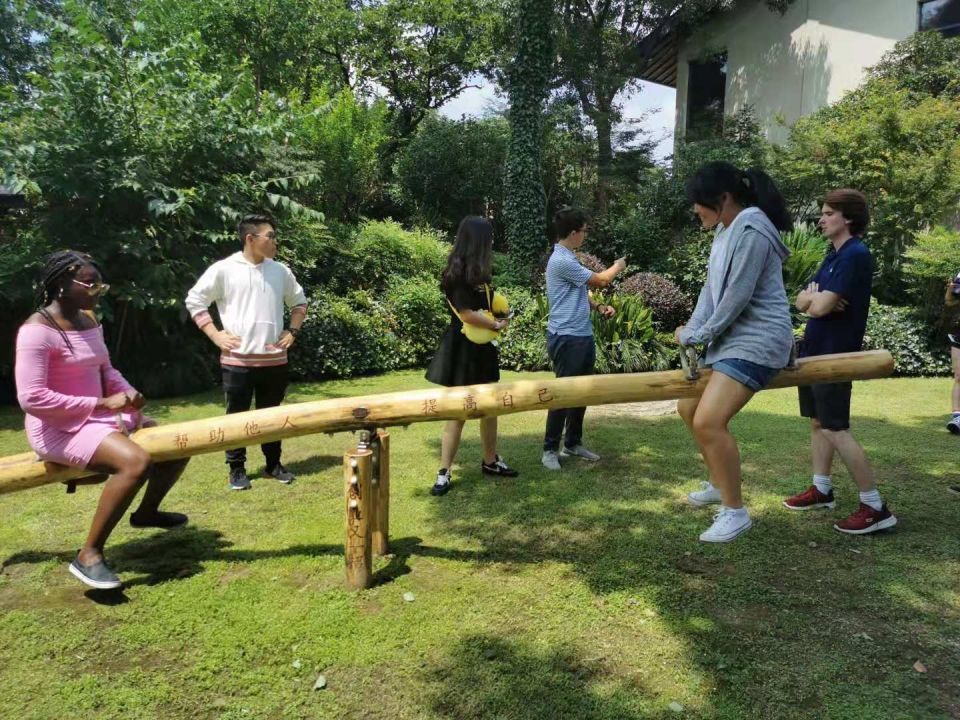
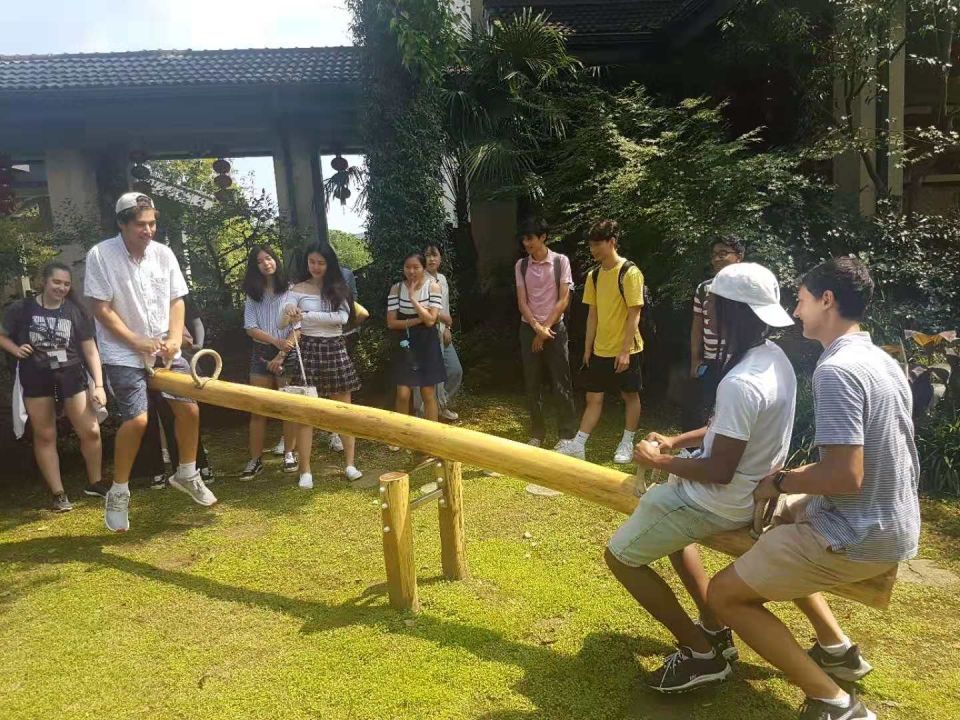
Walking around the grounds, students also got to meet some of Jack Ma's animals. They got to meet his 2 dogs, his baby big, his 4 peacocks, and his goat. Students even got to feed his pet pig and goat.


Inside the dining room at the Zen garden, we ate our group lunch. All the foods that we ate are typically served to the businessmen and women that visit the garden, so, of course, they were all very delicious!
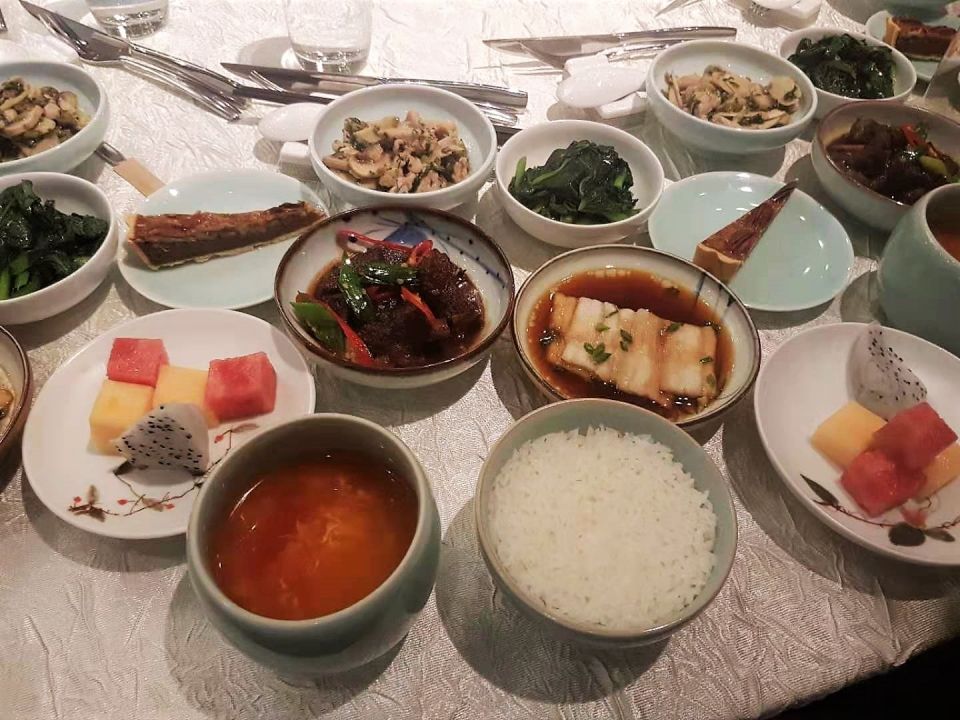
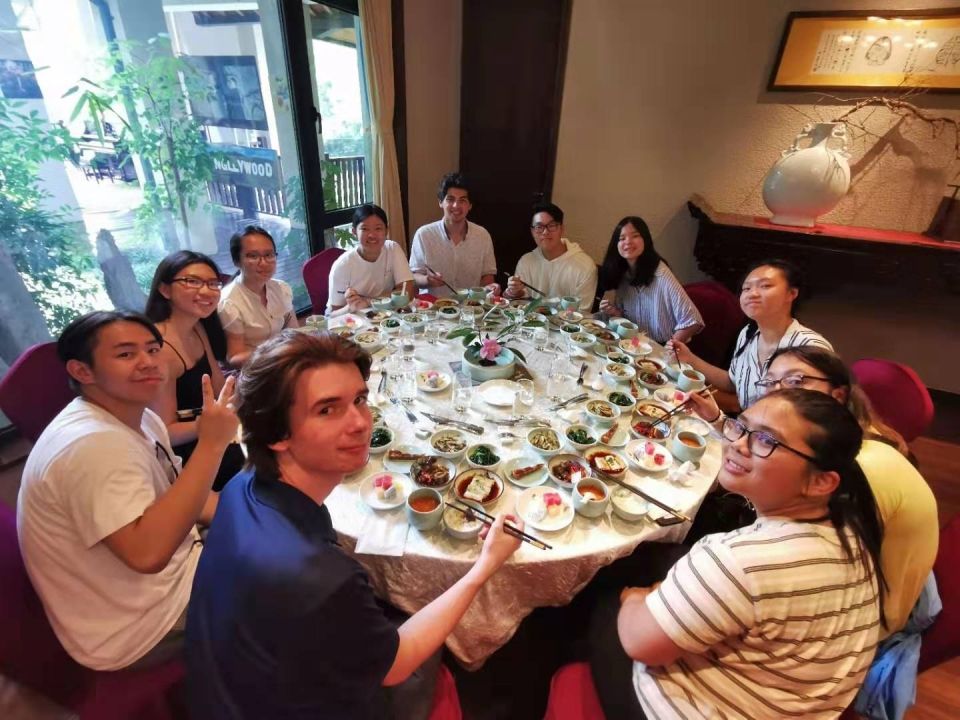
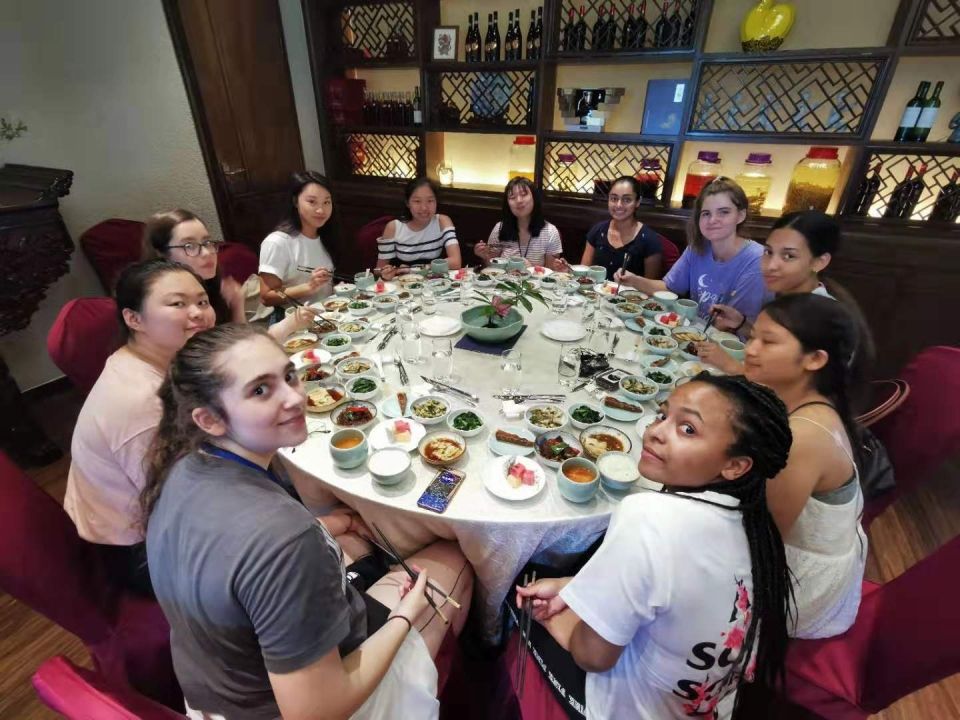
After lunch, we split up into groups to get a complete tour of the garden and learn Tai Qi from Jack Ma's own Tai Qi master. The students really enjoyed seeing the grounds and learning the art of Tai Qi from a master.
In terms of Tai Qi's relationship to the Alibaba business model, Jack Ma said, "The more I study Tai Qi, the more I feel that whenever I do business, whether it's internal management or staff management, with customers or with competitors, these are all almost in the accordance with the purpose of Tai Qi." In terms of its benefits on students' health and wellness, many said that they felt much more relaxed and inspired after these activities and visiting the garden.
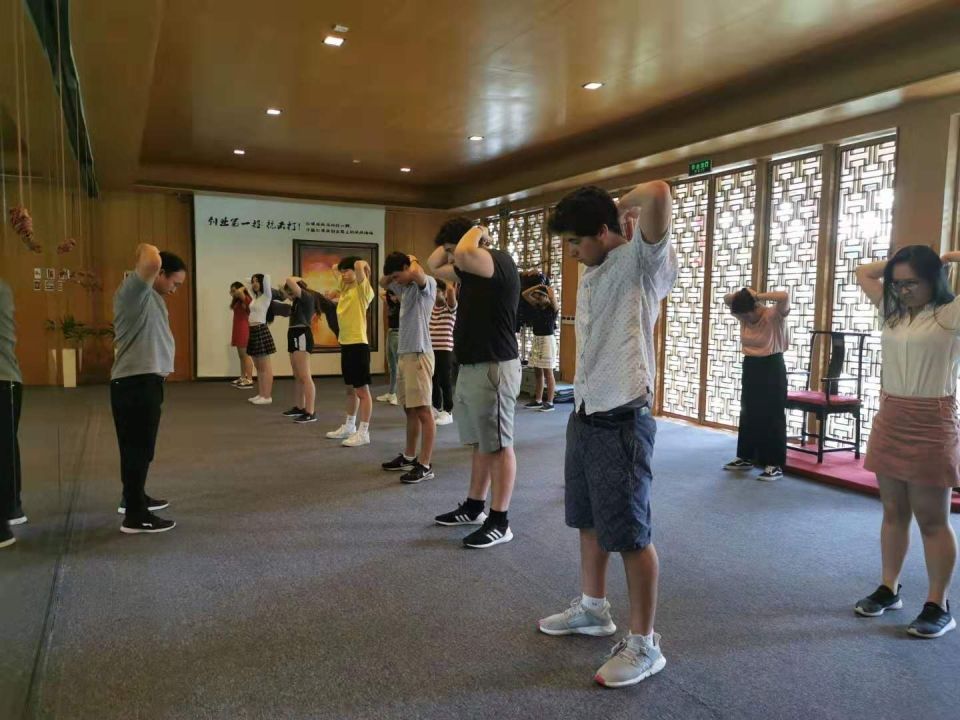
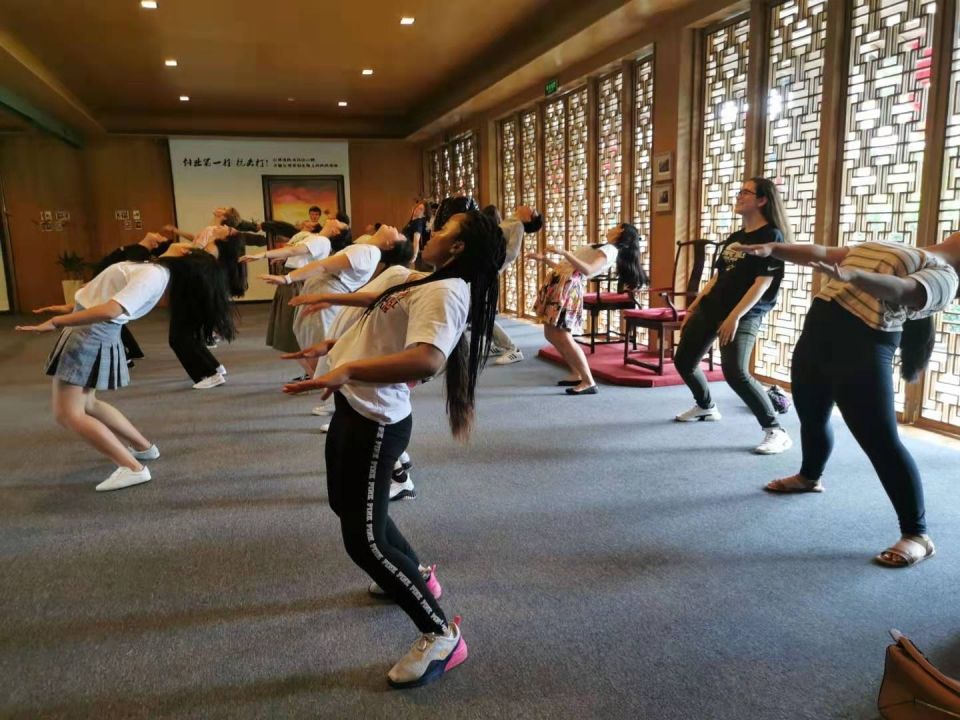
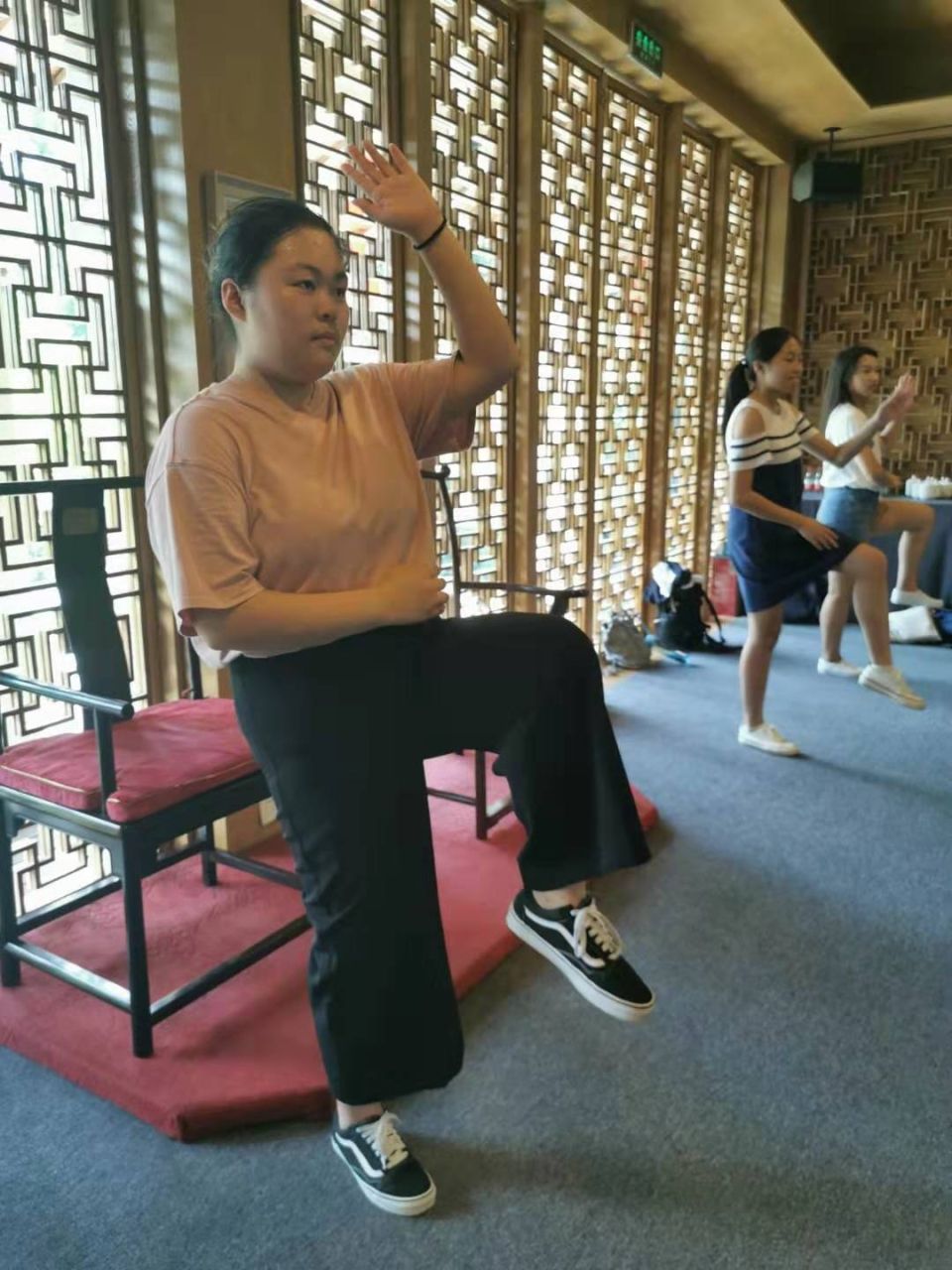
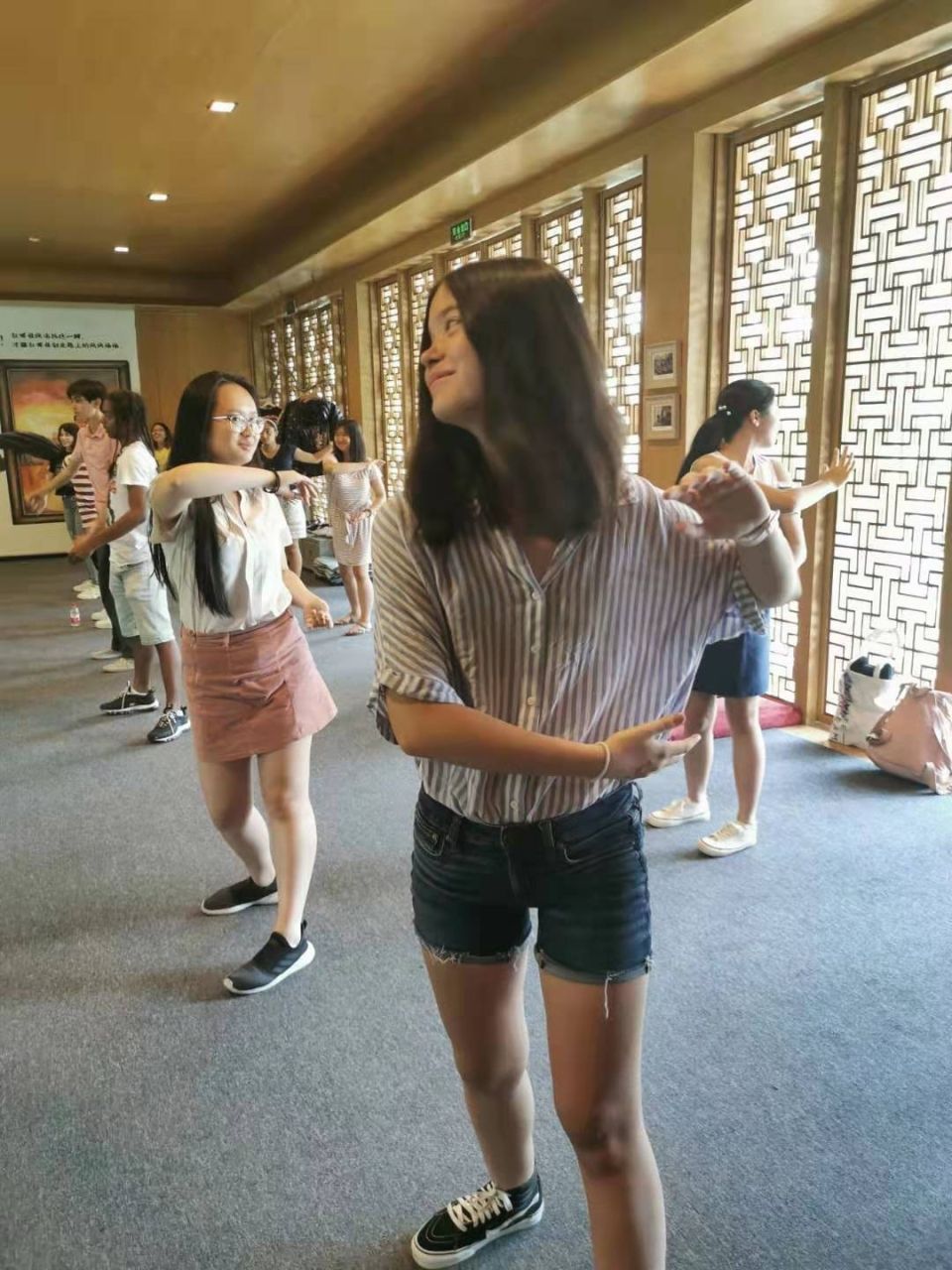
For the final activity of the tour, students were invited to play a game that demonstrates Jack Ma's and Alibaba's personal and company philosophy. The game is based on a traditional Chinese game. Students were given a ball that was held together by 6 pieces. Then, they were instructed to drop the ball on the ground so that it broke apart into all 6 of its pieces. The game was figuring out how to put the ball back together. However, there was a twist to this game.
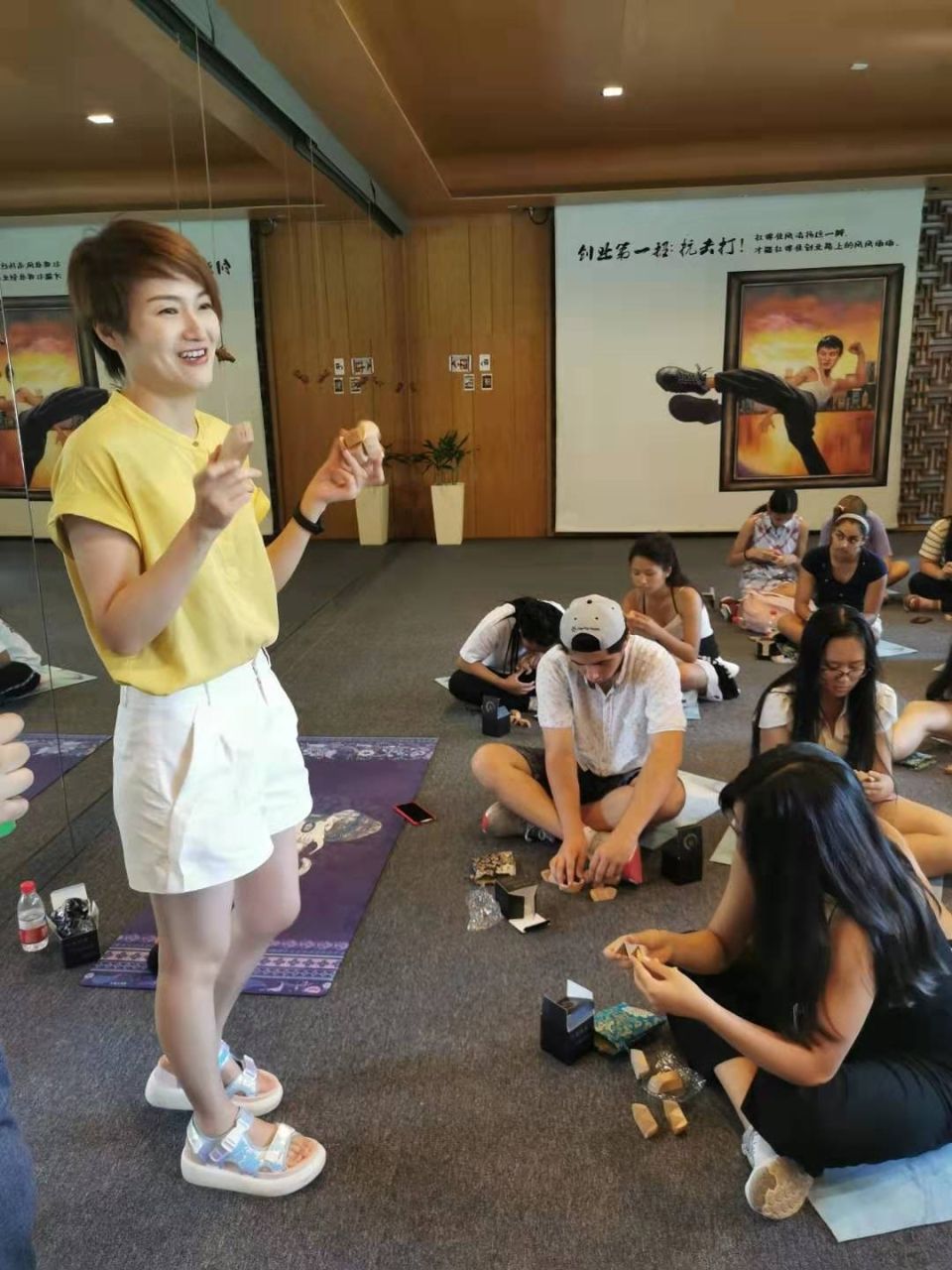
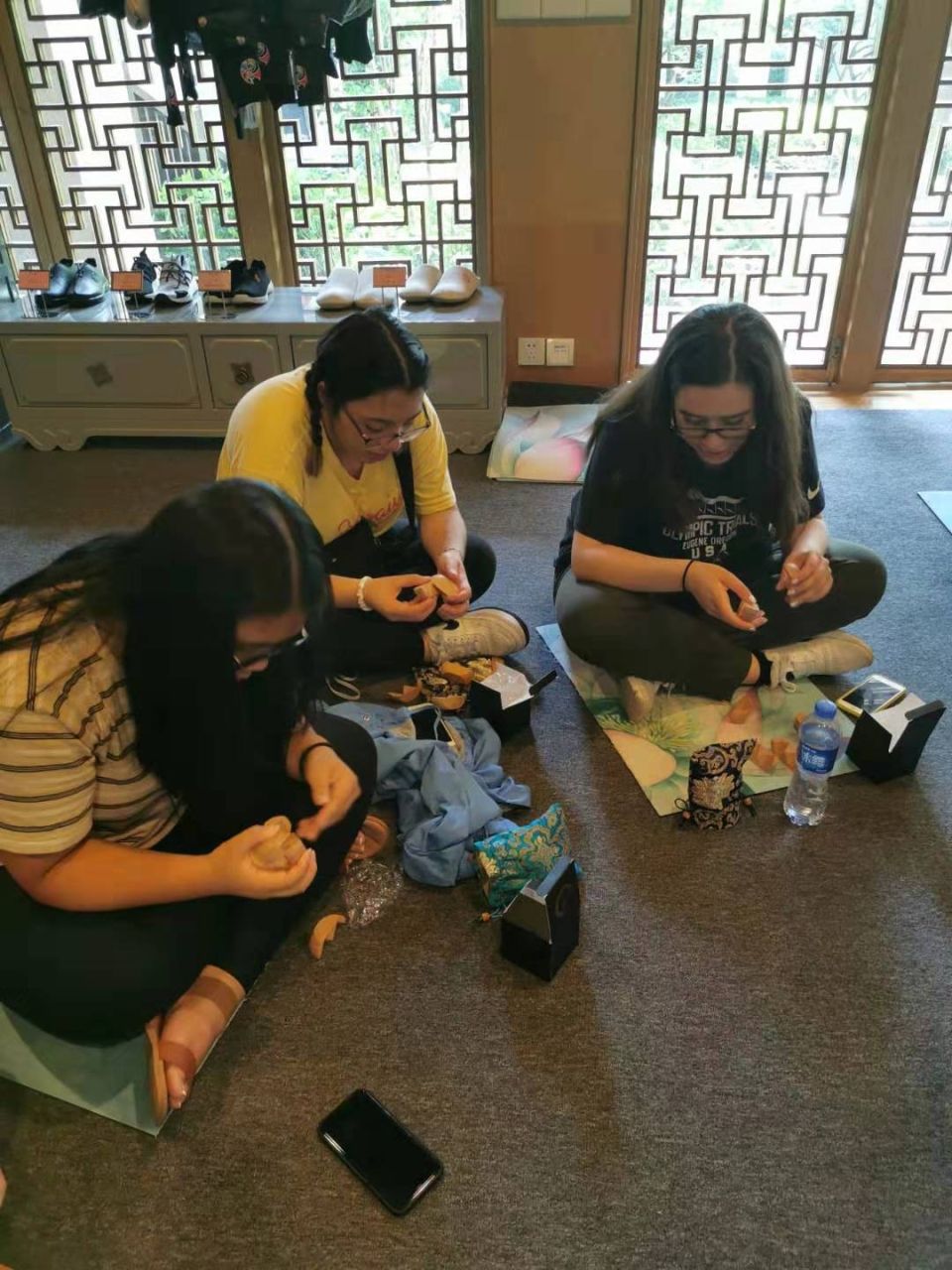
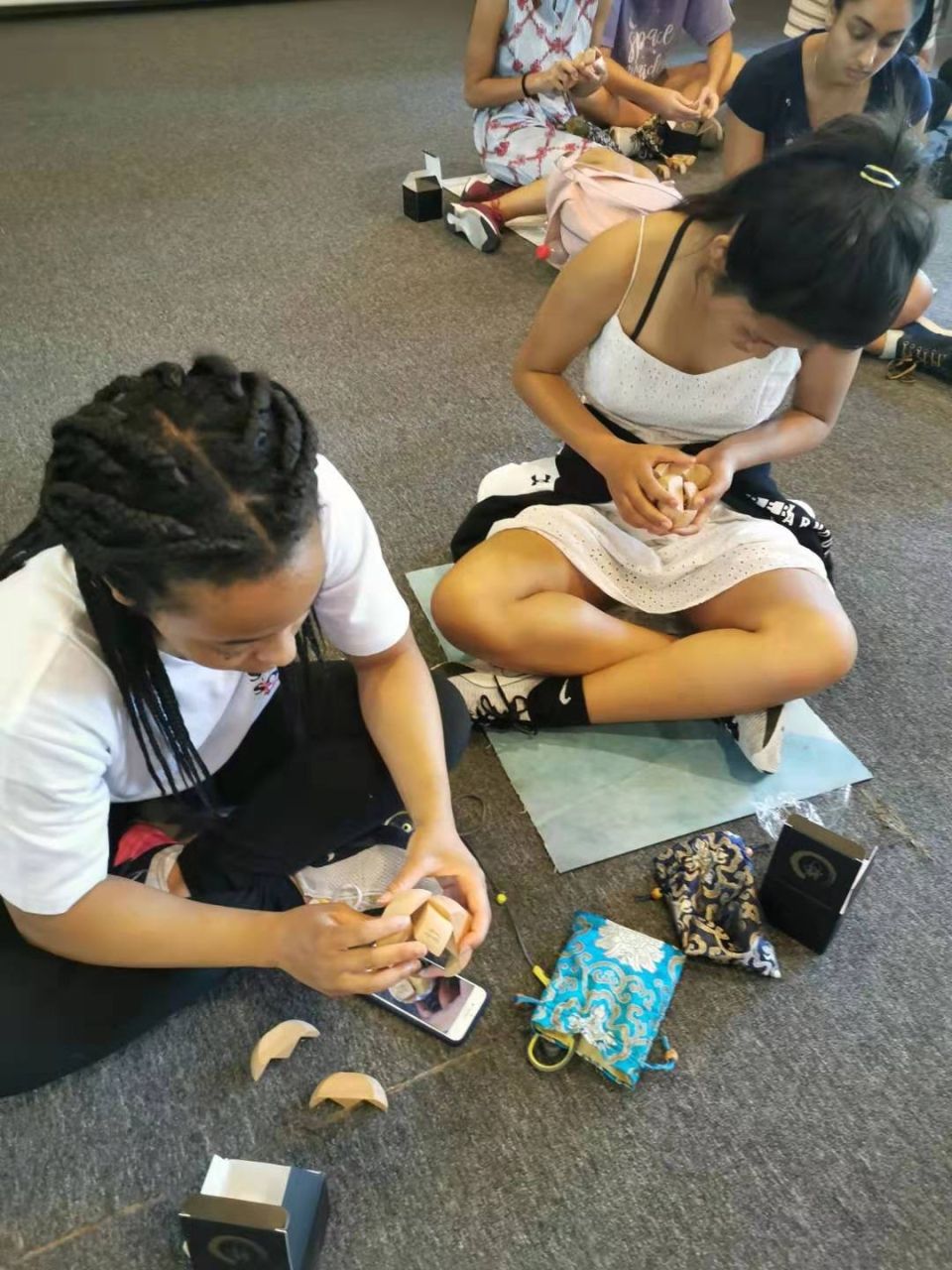
Most of the students were able to get 5 out of the 6 pieces back together, with just 1 piece that would not fit. This demonstrated the company's philosophy that, even when it seems like you're only one step away from success, you may not even be close to success' door. This was signified by the piece that would not seem to fit back inside the puzzle. So, the only thing for students to do in this situation was to regroup and try things in a new and different way until they solved the puzzle. This second phase of the activity was meant to show that sometimes, even when it feels like you're far away from success, you may actually be closer to it than you think.
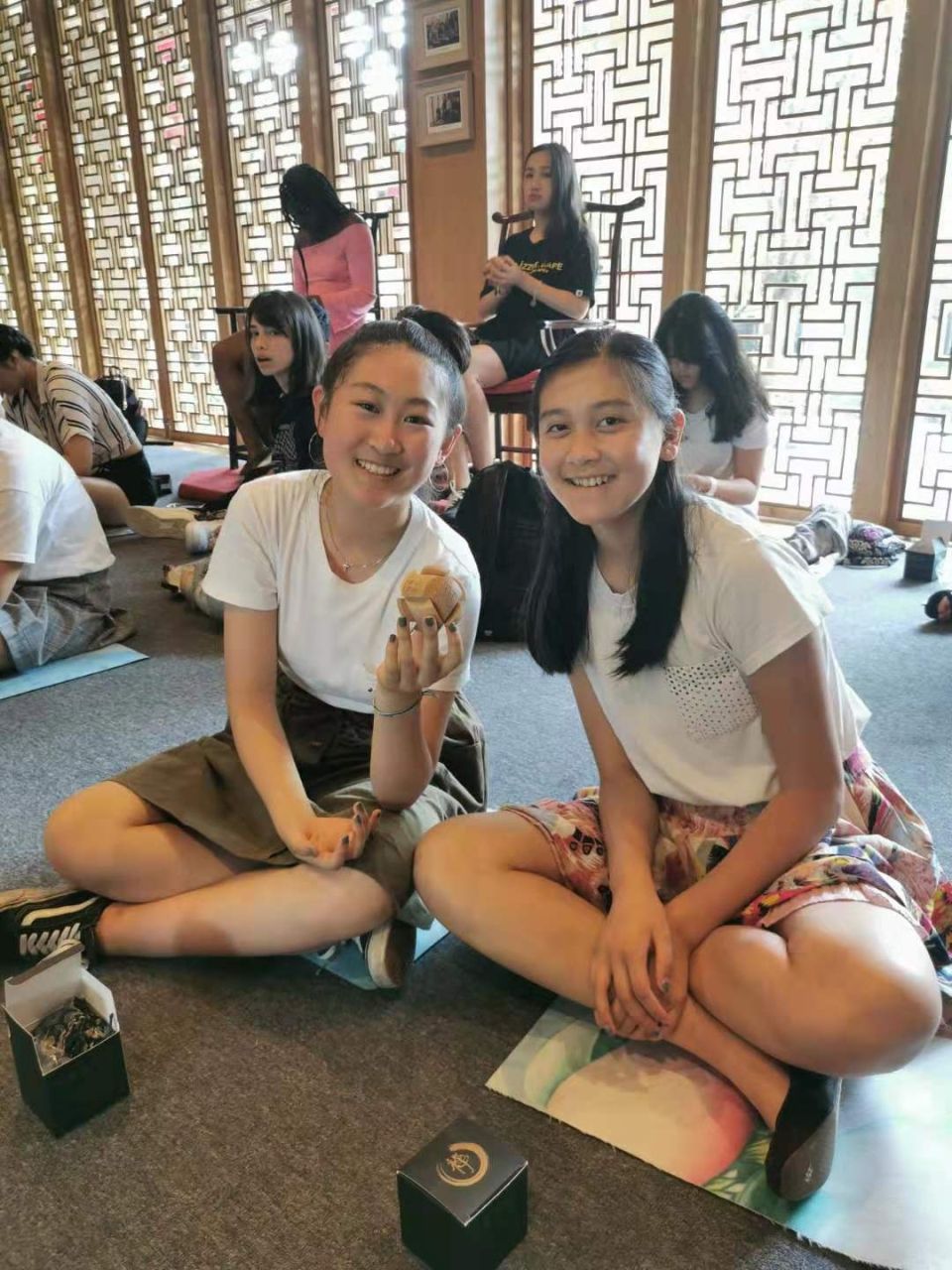
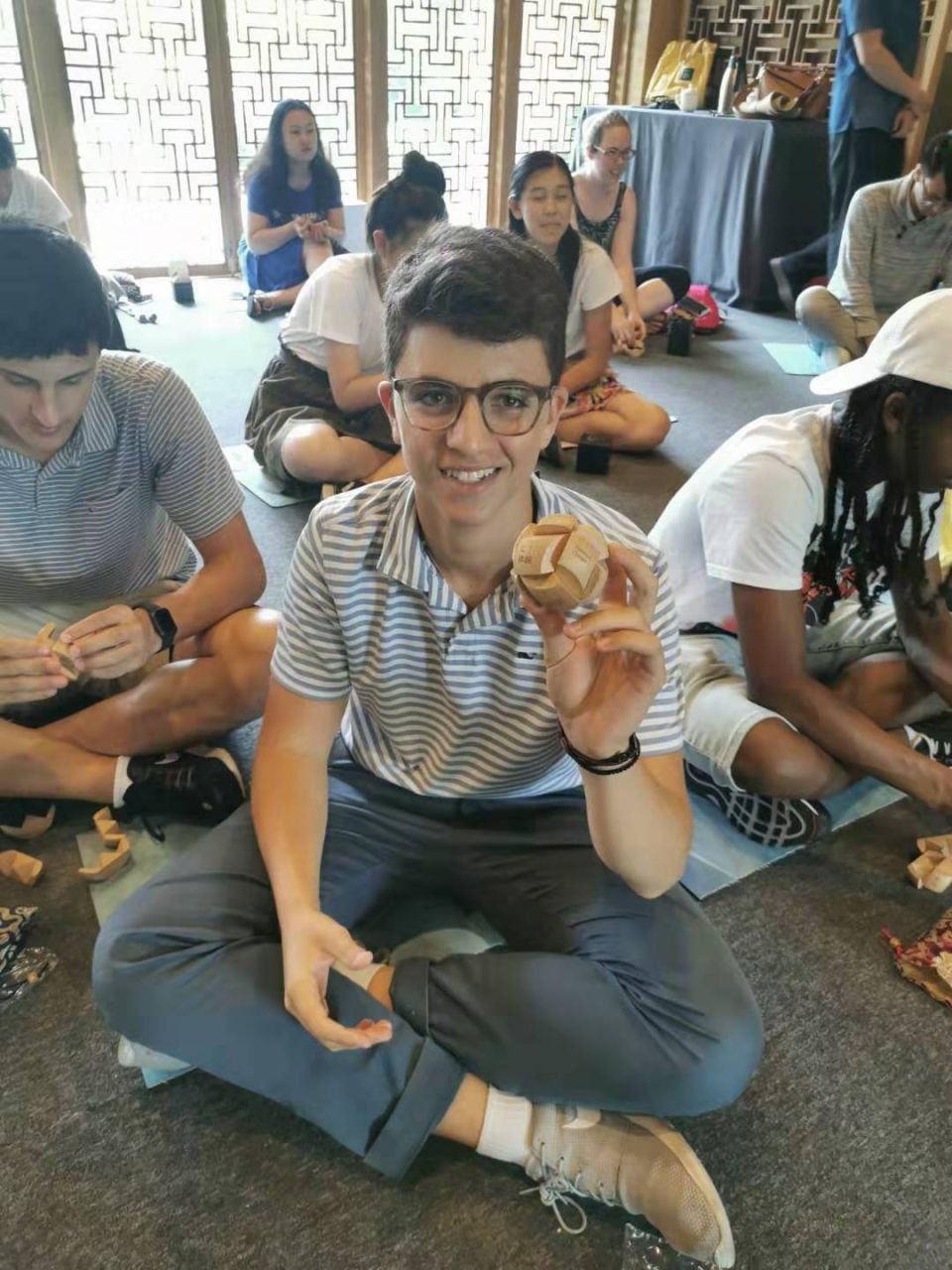
After everyone figured out how to put the ball back together, our tour guides challenged us to a competition of who could put it back together the fastest. With an incredibly fast time of only 8 seconds, our winner was Diego. His prize was a signed copy of Jack Ma's autobiography.
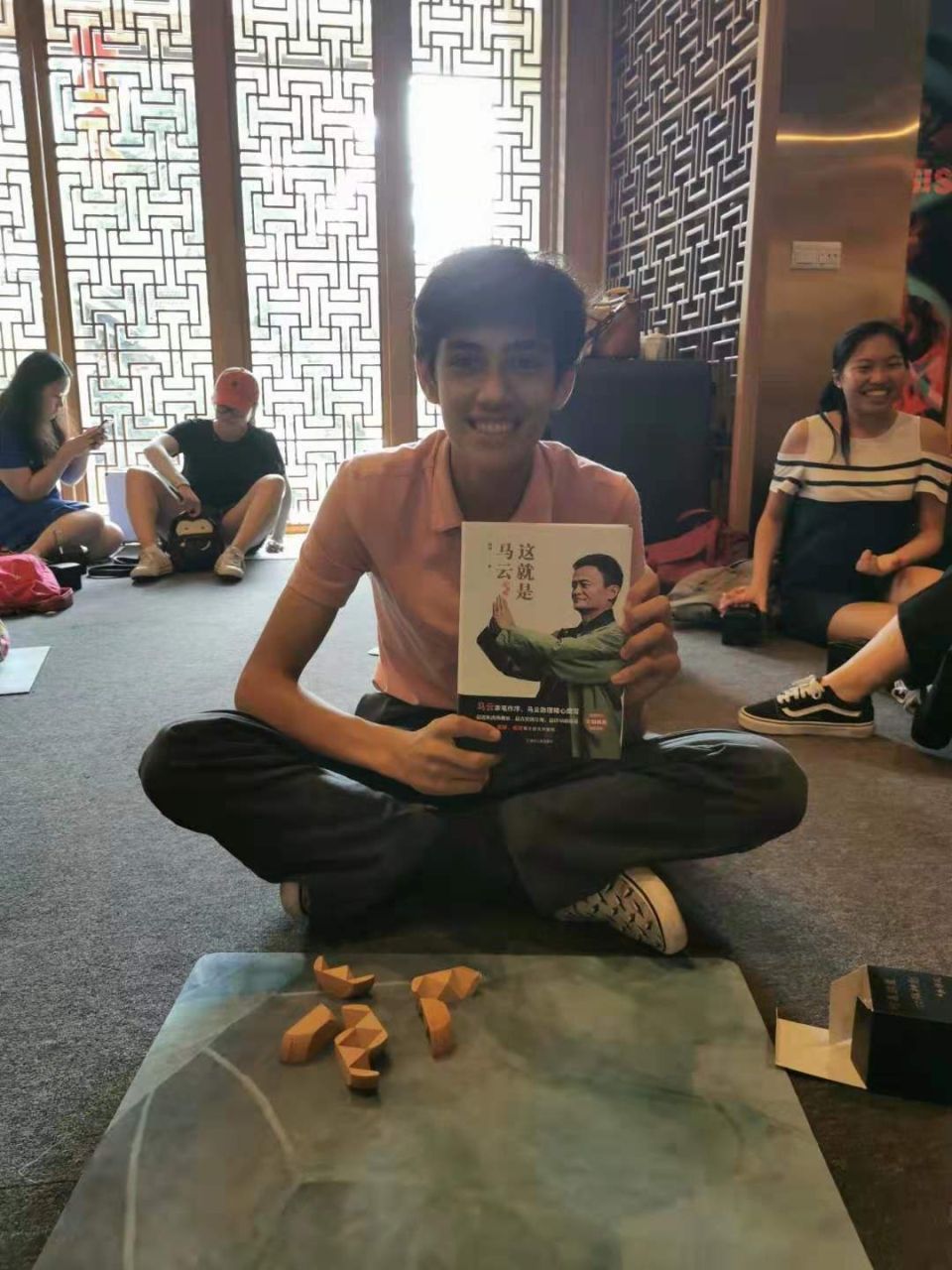
Before we left, our tour guides gave all of us another gift: hats with Jack Ma's handwritten calligraphy on them. The character that Jack Ma wrote was “chan” (禅), which means "Zen" or "meditation" in Chinese. Jack Ma wrote this character because the philosophies that underly the concept of yin and yang, Tai Qi, and Zen/meditation are deep in his heart and the keys to his success.

After we finished our time at Jack Ma's private Zen garden, the students were extremely happy and full of energy. Lots of them even said that this day was their favorite day on the program so far. With Jack Ma as a positive role model of what it means to be a well-rounded businessperson, we hope that our students will follow in his example and go on to become successful CEOs and business people in the future!
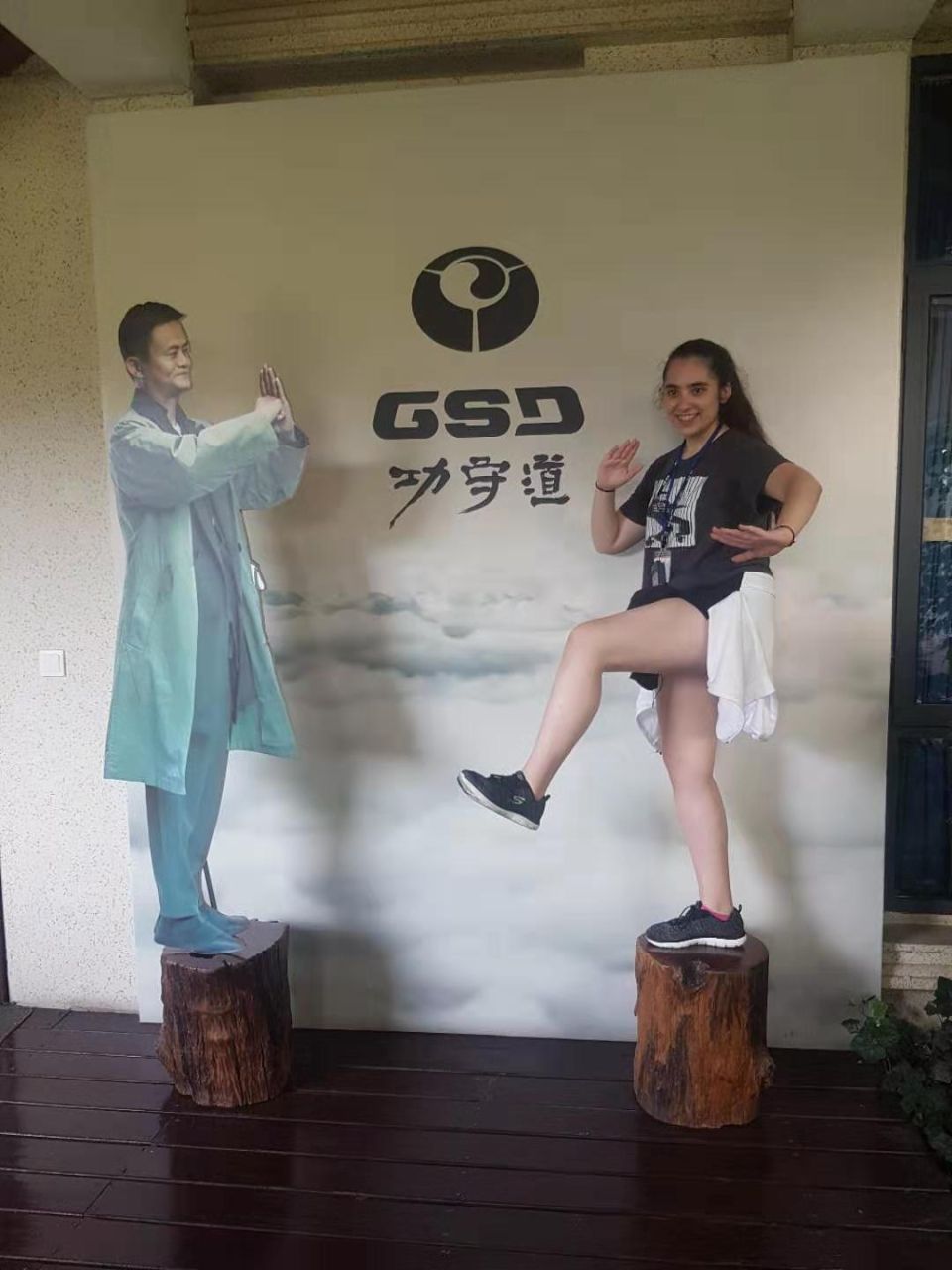
Related Posts
Wuxi (无锡) - Day 2!
Hanfu (汉服) refers to the traditional clothes worn by the Han ethnic people of China. In ancient times, hanfu was distinguished by social status, occupation, and occasions. Those in the... keep reading
Exploring Shanghai - Visiting Yu Garden and Old City God Temple
On July 18, students visited the Yu Garden (豫园)and the Old City God Temple (城隍庙) in downtown Shanghai. During the excursion, students walked with their peers to explore the history... keep reading

















